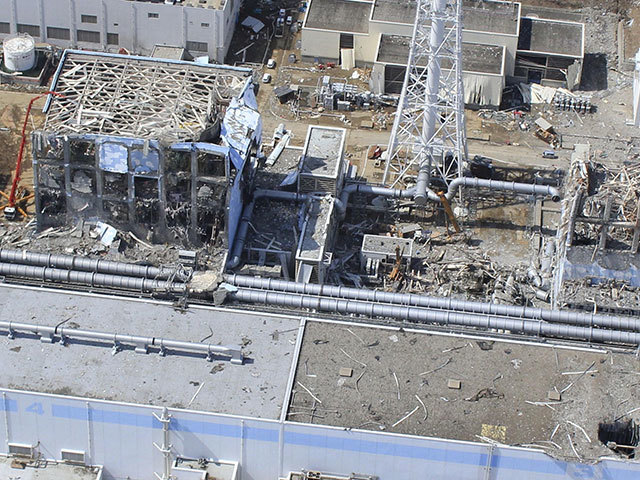
Tokyo Electric Power will deploy a second system to strip a dangerous isotope from water stored at its wrecked Fukushima nuclear facility, as it struggles to overcome problems with its existing water processor.
The utility known as Tepco has signed a contract with Kurion to remove strontium from about 400,000 metric tons of radioactive water stored at Fukushima using truck-mounted filters, the Irvine, California-based company said in a statement.
Kurion’s equipment will be used alongside the site’s ALPS processors, which have been prone to stoppages. The Toshiba system is designed to remove strontium, linked to bone cancer, and 61 other isotopes from water contaminated by contact with highly radioactive reactor fuel.
“Strontium is the greatest emitter of radiation impacting site dose-rates,” Kurion founder and president John Raymont said in the statement. “So reducing strontium in tank water stored on-site will significantly improve worker safety and reduces the risk to the surrounding environment.”
Two of ALPS’s three units, each capable of processing 250 tons of water per day, were taken offline last month after high levels of calcium were found in the water leaving the system. One resumed today, while a third came back online on May 23, two months after filters and gaskets deteriorated due to radiation exposure.
Kurion’s contract to remove strontium requires it to “rapidly” establish a system that can process 300 tons of water a day, according to the company’s statement.
It expects filtration to begin this summer, although Japan’s Nuclear Regulation Authority must approve the system before it can be activated, Tepco spokesman Tatsuhiro Yamagishi said. Financial terms of the contract were not disclosed.
Toshiba sees ALPS as having a different mandate from Kurion’s system and aims to filter a broader range of contaminants, spokeswoman Midori Hara said.
ALPS “is currently under trial operation and the company is making necessary adjustments for its full operation,” she said.